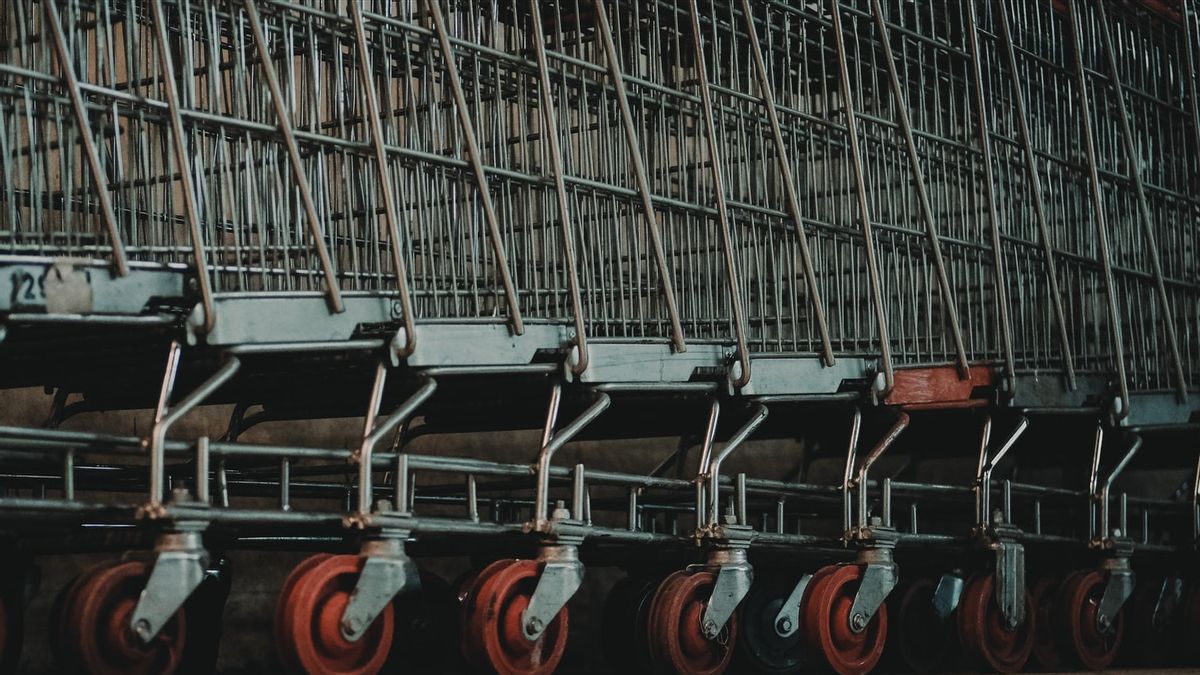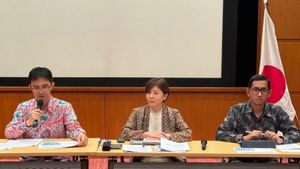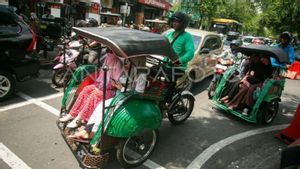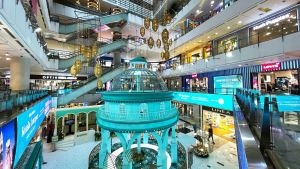JAKARTA - The COVID-19 pandemic has depressed almost all business sectors. Shopping centers or malls are one of the sectors that feel the immediate impact of the spread of the virus. The large-scale social restriction (PSBB) policy implemented by the government to suppress the spread of COVID-19 has caused mall occupancy to become increasingly sluggish.
As is well known, there are special policies, such as in DKI Jakarta, which directly target shopping centers. Currently, the rate of mall visits is limited to only 50 percent during the implementation of the transitional PSBB. Not only that, there is a new policy, namely limiting operating hours, which is at most 21.00 WIB.
Colliers International Indonesia Senior Associate Director Ferry Salanto said the condition had caused many retailers in shopping centers to be increasingly depressed and collapsed. As a result, some of them were unable to survive and were forced to close their businesses.
"So these retailers lack traffic entering the mall, transactions have also decreased so that some of them cannot survive and that ultimately affects the occupancy rate," he said, in a virtual discussion, Wednesday, December 6.
Ferry said, the lack of visits to the shopping center will continue in 2021. In which more and more entrepreneurs will choose not to continue their retail in shopping centers.
The Government Implements PSBB in Java-BalilMost recently, PSBB is not only applied in the Jakarta area. The government through the Chairman of the Committee for Handling COVID-19 and National Economic Recovery (KPC-PEN) Airlangga Hartarto decided to implement the PSBB in Java and Bali. The goal is none other than to reduce the spread of COVID-19.

This new policy took effect on January 11 and ends on January 25. This is also part of the government's anticipation to be aware of the finding of a new variant of COVID-19 which is said to be more contagious.
This decision is in accordance with Government Regulation (PP) Number 21 of 2020 concerning Large-Scale Social Restrictions in the Context of Accelerating Handling of COVID-19.
Ferry said that if the PSBB was tightened and the number of visitors to the mall was also reduced, most of these retail entrepreneurs could not survive. This means that retail entrepreneurs are already on the verge of bankruptcy.
"Some of these tenants are already very critical. This means that they find it difficult to survive with the conditions in the mall which are very reduced. Especially if the pandemic continues, it is likely that many will not be able to survive and that will also affect rents from shopping centers," he said.
Furthermore, Ferry said, retail business is a type of business that focuses on crowds and crowds. If there are no crowds or crowds then sales will also decline. Meanwhile, crowds during the COVID-19 pandemic are strictly prohibited.
"In fact, they need a crowd, a crowd, whereas these crowds are things that are avoided during the pandemic and it cannot be denied that it affects the performance of retailers," he explained.
Many malls are closed and for saleChairman of the Indonesian Shopping Center Management Association (APPBI) Alphonzus Widjaja said the new strict PSBB policy in Java and Bali has the potential to cause a number of malls and shopping centers to close their operations. Because, now the economic activity in this sector has not returned to normal.
[/ read_more]
"There will be potential for shopping centers to close their businesses or sell them," he told reporters, Wednesday, January 6.
Alphonzus explained that this policy would hamper economic movement and cause the retail sector to deteriorate further.
"The restriction will certainly result in retardation of the economy, which is actually starting to generate movement, although it is still taking place gradually," he said.
Previously, Chairman of the Committee for Handling COVID-19 and National Economic Recovery (KPC-PEN) Airlangga Hartarto said that the implementation of limited restrictions was carried out by provinces in Java and Bali.
In taking this policy, Airlangga said that the government looked at data on developments in handling COVID-19, such as the risk zone for virus transmission, the ratio of the occupancy of isolation beds and the ICU. In addition, the government also sees active cases of COVID-19, which currently has reached 14.2 percent.
According to Airlangga, social restrictions in provinces, districts or cities must meet the parameters related to handling COVID-19. The parameters include, among others, the death rate is above the national average of 3 percent. Then the cure rate is below the national level of 82 percent.
[/ read_more page = "2/2"]
Furthermore, active cases under the national active case were 14 percent, and hospital filling for isolation and ICU beds was above 70 percent.

The restrictions that have been tightened include:
1. Limiting Work From Office (WFO). WFO only becomes 25 percent and Work From Home (WFH) becomes 75 percent.
2. Teaching and learning activities will still be online.
3. The essential sector specifically for basic needs will still operate 100 percent but with health protocols.
4. There are restrictions on opening hours of shopping centers, aka malls, until 19.00 WIB. For restaurants, 25 percent and food orders must take away and delivery can remain open.
5. Construction is still running 100 percent with strict health protocols and places of worship limited to 50 percent. Public facilities have been temporarily closed and modes of transportation are further regulated.
[/ read_more]
The English, Chinese, Japanese, Arabic, and French versions are automatically generated by the AI. So there may still be inaccuracies in translating, please always see Indonesian as our main language. (system supported by DigitalSiber.id)










